What Does 5G Mean for the Future of Smart Homes?
15 January 2025
The future is here, and it's faster than ever—literally. With 5G rolling out across the globe, we're on the brink of a technological revolution, and one space that's poised to benefit massively is our homes. Yes, you heard that right—5G has the potential to transform smart homes in ways we could’ve only imagined a few years ago. But what exactly does 5G mean for the future of smart homes? Grab a cup of coffee, get comfortable, and let’s dive into it!

What Is 5G?
Before we go any further, let’s quickly break down what 5G actually is. Essentially, 5G is the fifth generation of wireless technology, and it’s a huge leap from its predecessor, 4G. We're talking about a dramatic increase in speed, lower latency (the delay before data starts transferring), and the ability to connect more devices simultaneously. Think of 5G like upgrading from a bicycle to a jet—you're still getting from point A to point B, but in a much faster, more streamlined way.Now, imagine that jet-fueled speed and efficiency applied to your home. Sounds exciting, right? Let’s explore how 5G will impact smart homes.
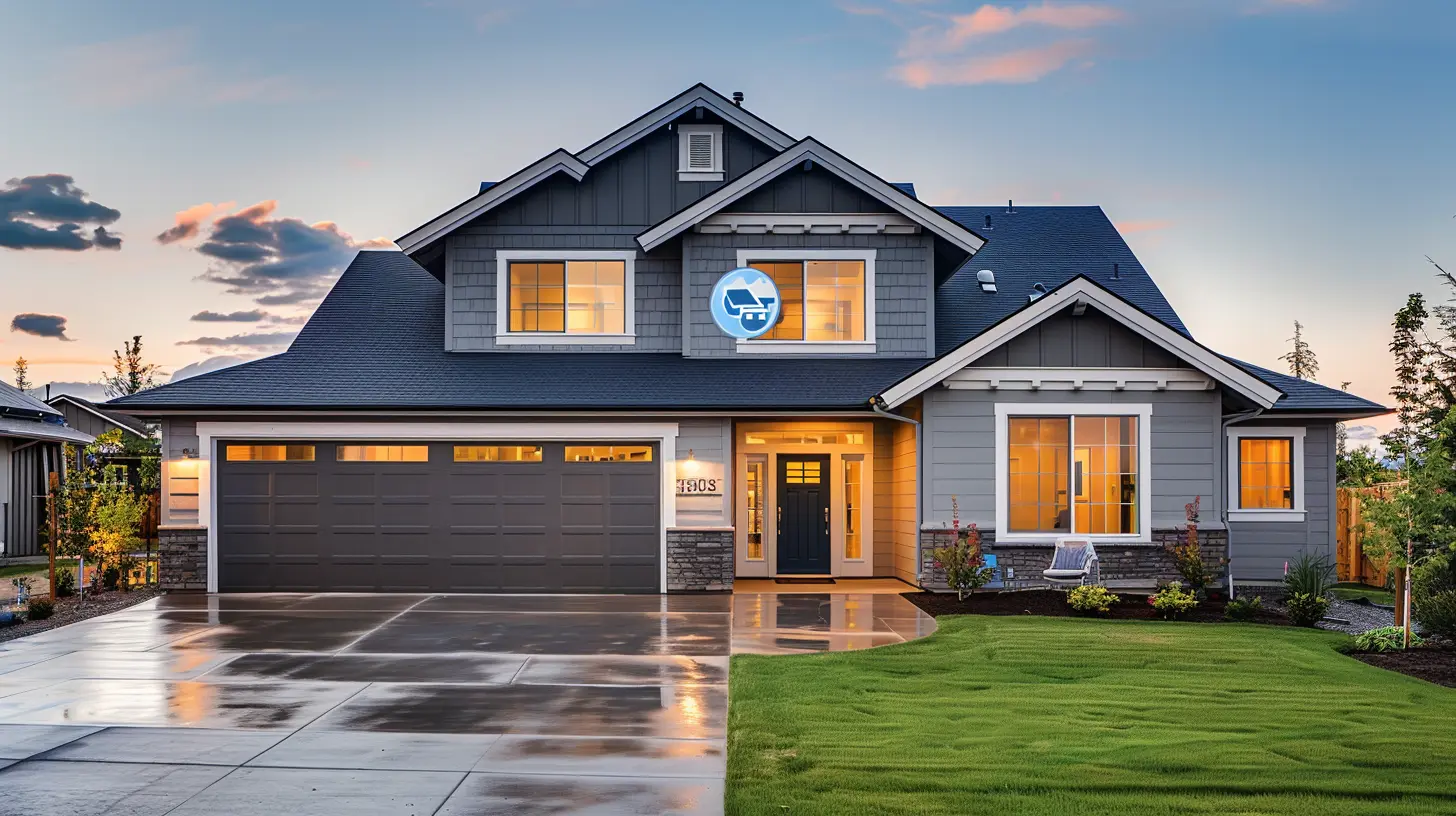
The Current State of Smart Homes
Before we dive into the future, let’s quickly talk about where smart homes stand today. From smart speakers like Amazon Echo and Google Home to smart thermostats and lighting systems, many homes already have a range of connected devices. You can control your lights through your smartphone, lock your doors remotely, and even ask your smart assistant to play your favorite tunes. However, with all these connected devices, there’s a demand for better, faster, and more reliable internet connectivity.Enter 5G.
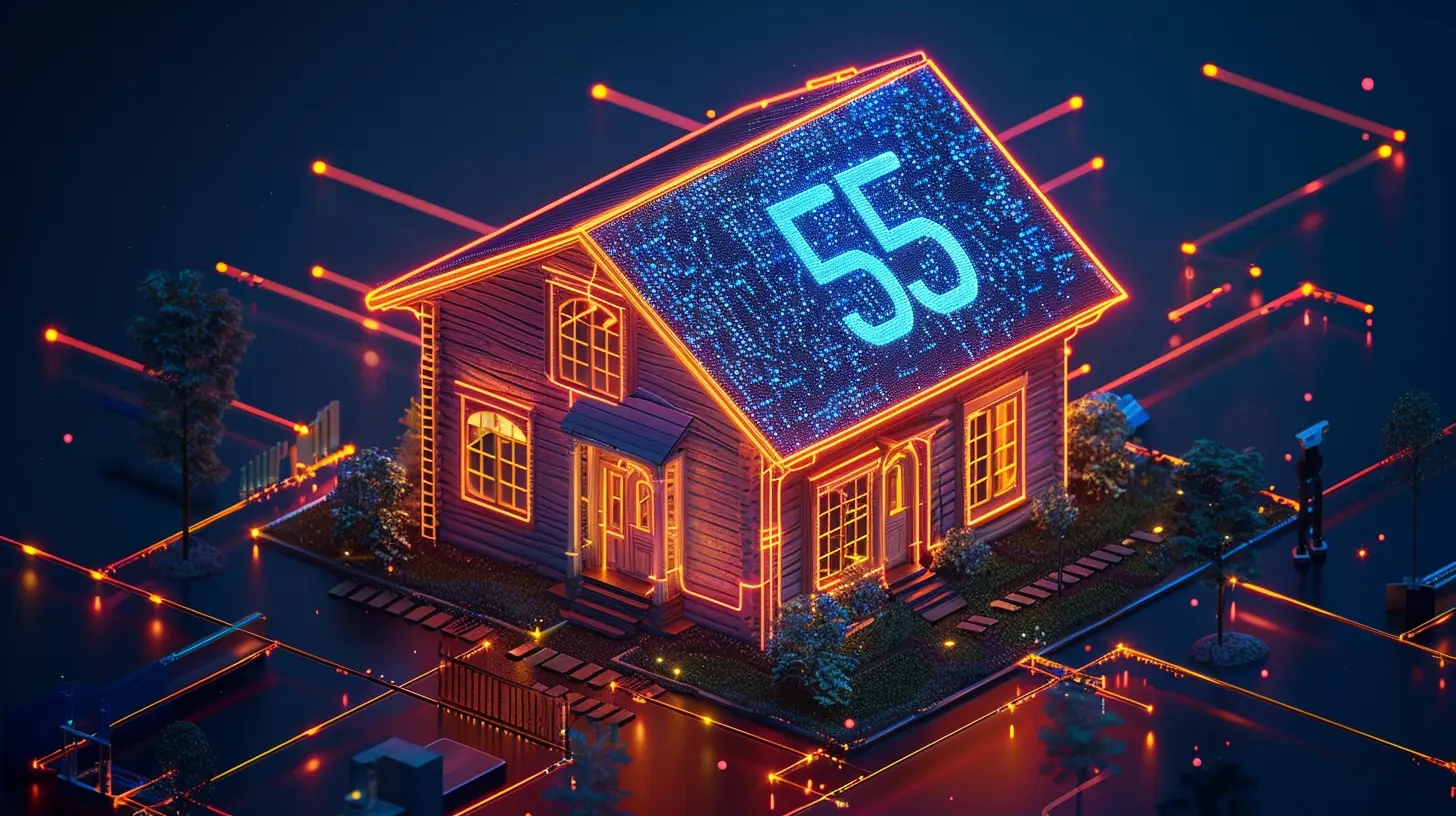
Faster, More Reliable Connectivity
One of the biggest benefits that 5G will bring to smart homes is faster and more reliable connectivity. Right now, many smart devices rely on Wi-Fi, and let’s be honest, Wi-Fi can sometimes be spotty or slow. You’ve probably experienced the frustration of trying to load a movie or control your smart lights only to be met with buffering or unresponsiveness.With 5G, those issues will be a thing of the past. The increased speed and reduced latency will ensure that all your smart devices work seamlessly and in real-time. Imagine being able to stream 8K video on multiple devices, have your smart security system running in the background, and still be able to control your entire home without a single hiccup. No more buffering, no more dropped connections—just smooth, instant control.
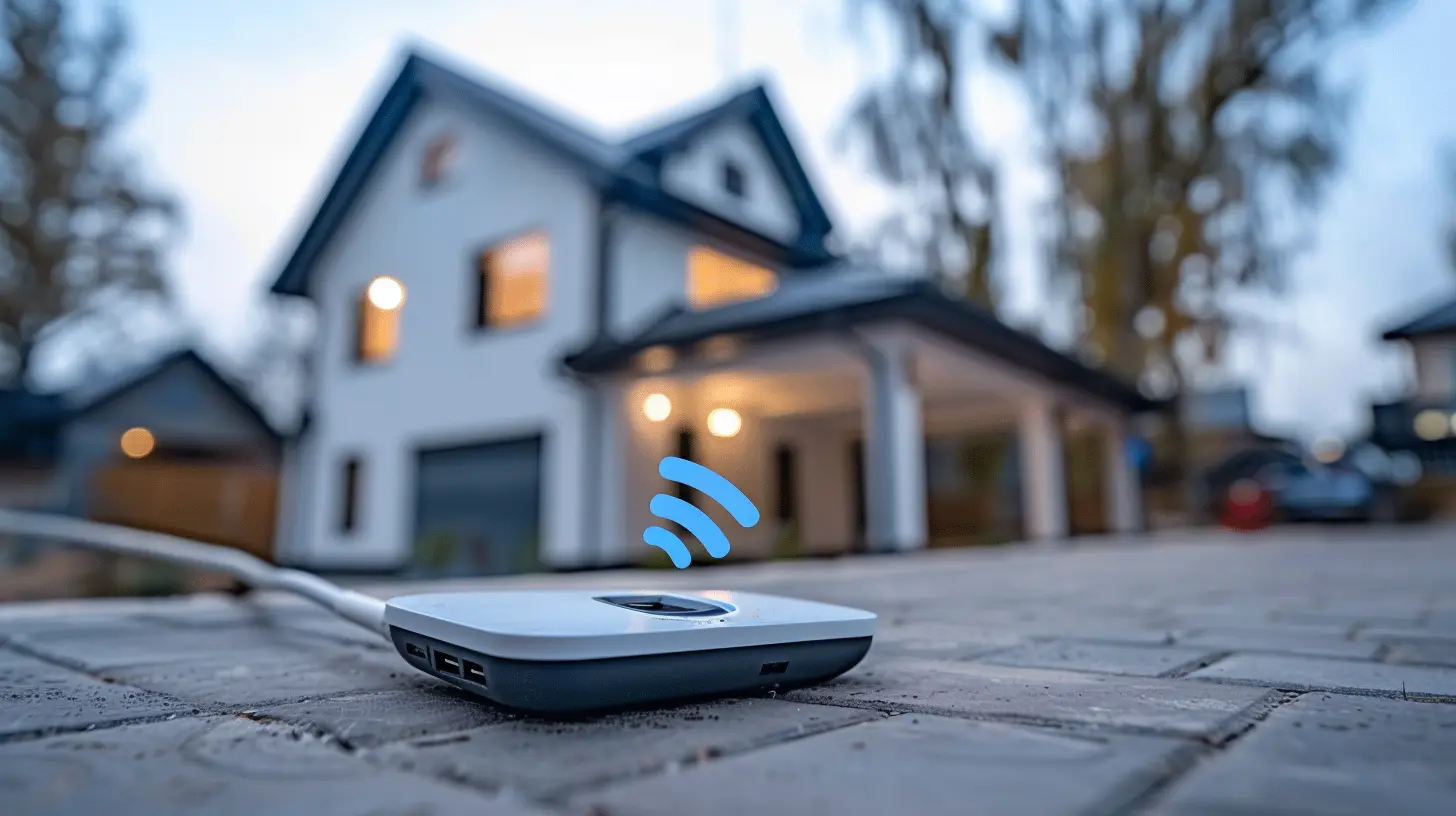
More Devices, No Problem
As we move toward a more connected future, the number of smart devices in homes is only going to increase. Right now, Wi-Fi networks can get bogged down when too many devices are connected. Ever tried connecting your smart TV, smartphone, laptop, and gaming console all at once? Chances are, your internet speed took a nosedive.5G can handle a significantly larger number of devices without breaking a sweat. This means that as you add more smart gadgets—whether it’s smart refrigerators, smart locks, or smart cameras—they’ll all work together harmoniously without slowing down your network. It's like upgrading from a one-lane road to a multi-lane highway; more traffic can flow smoothly without causing a jam.
Enhanced Security Features
One of the biggest concerns people have when it comes to smart homes is security—and rightfully so. After all, if your devices are connected to the internet, there's always the risk of hacking. But here’s where 5G can make a difference.5G networks are built with stronger security protocols compared to previous generations, meaning your smart devices will be better protected from cyber threats. Plus, faster response times will allow for real-time monitoring of security systems. Imagine having an AI-powered security camera that can instantly alert you to suspicious activity and give you a crystal-clear, real-time video feed. That’s the kind of peace of mind 5G can bring to smart homes.
Real-Time Automation
Automation is one of the most exciting features of smart homes. Whether it’s setting your thermostat to adjust the temperature based on your preferences or having your lights turn on as soon as you walk into a room, automation makes life easier.But here’s the thing—current smart home automation systems are often limited by latency. If you’ve ever told your smart assistant to turn on the lights and had to wait a few seconds for it to happen, you know what I'm talking about.
With 5G, those delays will be virtually eliminated. You’ll be able to control all your devices in real-time, making automation feel truly instantaneous. It’s like magic—speak a command, and it happens right away.
Revolutionizing Entertainment
Entertainment is a big part of the smart home experience, and 5G is set to take it to a whole new level. With 5G’s lightning-fast speeds and ultra-low latency, streaming high-quality content will be smoother than ever. Imagine being able to stream 8K videos, play cloud-based games without lag, and host virtual reality (VR) movie nights—all without worrying about buffering or interruptions.In fact, 5G’s potential for VR and augmented reality (AR) experiences could completely change how we consume media at home. Picture this: instead of watching a movie on your TV, you could immerse yourself in a 360-degree VR experience right from your living room. With 5G, the future of entertainment is looking downright futuristic.
Smarter Energy Management
Let’s face it—energy efficiency is becoming more important every day. Smart homes are already helping us reduce energy consumption, but 5G will take things up a notch. With faster and more reliable connectivity, smart energy systems will be able to monitor and adjust energy usage in real-time with even more precision.For example, your smart thermostat could learn your habits and adjust the temperature more efficiently to save energy without sacrificing comfort. Or, an AI-powered energy management system could automatically turn off lights and appliances when they’re not in use, cutting down on wasted electricity. 5G will make managing your home’s energy usage smarter, easier, and more effective.
The Rise of Smart Cities
Okay, so we've talked a lot about what 5G means for individual smart homes, but what happens when we zoom out and look at the bigger picture? Enter smart cities.As 5G continues to roll out, smart homes will become a key component of smart cities. Imagine a world where your home is connected not just to other devices inside, but also to the city around you. Your smart home could communicate with traffic systems to let you know the best time to leave for work or sync up with local energy grids to optimize power consumption.
In a smart city, everything from streetlights to waste management could be connected to a 5G network, making urban living more efficient and sustainable. And smart homes will be at the heart of it all.
The Future of Work: Remote Control from Anywhere
If there’s one thing the pandemic taught us, it’s that remote work is here to stay. But with 5G, working from home—or anywhere—will be easier and more efficient than ever. Imagine being able to manage your entire smart home from halfway across the world. Whether it's checking your security cameras, adjusting the thermostat, or even feeding your pet through a smart feeder, 5G will allow you to have complete control over your home no matter where you are.The ultra-fast speeds and low latency of 5G also mean clearer video calls, quicker data transfers, and smoother cloud-based collaboration. So, whether you’re working from home or just want to keep an eye on things while you’re on vacation, 5G will make it all possible.
Challenges and Considerations
Of course, no technology is without its challenges, and 5G is no exception. For starters, the rollout of 5G infrastructure is still ongoing, and it may take a few years before it’s widely available to everyone. Additionally, the cost of upgrading to 5G-compatible devices may be a barrier for some homeowners.There’s also the issue of data privacy. With more devices connected to the internet, there’s an increasing amount of personal data being shared. While 5G offers enhanced security, it’s still crucial for homeowners to be mindful of their privacy settings and take steps to protect their information.
Wrapping Up: The Future Is Bright
So, what does 5G mean for the future of smart homes? In short, it’s a game-changer. With faster speeds, lower latency, and the ability to connect more devices, 5G will make smart homes smarter, more efficient, and more enjoyable to live in. From real-time automation to enhanced security features, the possibilities are endless.While there are challenges to overcome, the future of smart homes powered by 5G is looking incredibly promising. So, whether you’re a tech enthusiast or just someone looking to make life a bit more convenient, 5G is set to make your home smarter than ever.
all images in this post were generated using AI tools
Category:
5g TechnologyAuthor:

Reese McQuillan
Discussion
rate this article
24 comments
Simon Garcia
5G isn't just speed; it's the key to a hidden future where our homes anticipate needs before we even speak.
February 22, 2025 at 12:20 PM

Reese McQuillan
Absolutely! 5G's low latency and high bandwidth will enable truly interconnected smart homes, enhancing convenience and personalization in ways we’re just beginning to imagine.
Nellie Wheeler
5G will revolutionize smart homes by enabling faster, more reliable connections for devices. This means seamless automation, improved energy efficiency, and enhanced security features, ultimately creating a more intuitive and responsive living environment for users.
February 2, 2025 at 7:59 PM

Reese McQuillan
Absolutely! 5G will be a game-changer for smart homes, facilitating faster connections that enhance automation, efficiency, and security, leading to a more integrated living experience.
Sylvan Wolfe
Fantastic article! I'm intrigued by how 5G could revolutionize connectivity in smart homes. Will this lead to more seamless devices, or could it create unforeseen challenges? Eager to see how this unfolds in everyday life!
January 27, 2025 at 9:52 PM

Reese McQuillan
Thank you for your kind words! 5G has the potential to enhance connectivity and create more seamless smart home experiences, but it may also introduce new challenges. It will be interesting to observe how these developments play out in everyday life!
Dominique Young
Fascinating insights! The potential of 5G to revolutionize smart homes is intriguing. Faster connectivity could enhance device communication and automation, leading to more efficient and intuitive living environments. I'm curious how emerging technologies might leverage this network to create truly smart and responsive homes!
January 26, 2025 at 3:59 AM

Reese McQuillan
Thank you! You're absolutely right—5G has the potential to transform smart homes by enabling faster, more efficient communication between devices, paving the way for truly responsive living environments. Exciting times ahead!
Mercy Cain
Exciting potential! How will it transform daily life?
January 25, 2025 at 8:20 PM

Reese McQuillan
5G will enhance connectivity, enabling smarter devices to communicate seamlessly, leading to greater automation, improved energy efficiency, and more efficient remote management in our homes.
Soliel McIntire
This article raises intriguing questions about the impact of 5G on smart homes! How will faster data speeds revolutionize our daily lives? Will it enhance security and connectivity among devices? I'm curious to see how this technology will shape automation and energy efficiency in the homes of tomorrow!
January 25, 2025 at 5:51 AM

Reese McQuillan
Thank you for your thoughtful comment! 5G has the potential to greatly enhance smart home connectivity, improve device interactivity, and enable more efficient automation, ultimately leading to smarter, safer, and more energy-efficient living environments. Exciting times ahead!
Aisha Carey
Great insights on 5G’s impact on smart homes! It's exciting to see how this technology can enhance connectivity and convenience in our lives.
January 24, 2025 at 7:57 PM

Reese McQuillan
Thank you! I'm glad you found the insights valuable. 5G truly has the potential to revolutionize smart home technology!
Mendez
5G: The magic wand for smart homes! It’s like giving your fridge a Tinder profile—now it can match with your oven for the perfect dinner date! 🍽️📱
January 24, 2025 at 12:22 PM

Reese McQuillan
Haha, exactly! 5G unlocks seamless communication between devices, making smart homes truly interconnected and efficient. Who knew dinner dates could involve fridges and ovens? 🍽️✨
Mira McTier
5G will revolutionize connectivity, enhancing smart living.
January 24, 2025 at 6:01 AM

Reese McQuillan
Absolutely! 5G's high speed and low latency will enable seamless smart home integration, making daily life more efficient and connected.
Juno Stewart
“5G? More like ‘Finally Getting Smart’! Get ready for homes that actually listen—just hope they don’t start texting your ex!”
January 23, 2025 at 12:02 PM

Reese McQuillan
Great take! With 5G, smart homes will indeed become more intuitive, but we'll need to keep our privacy settings in check!
Kendall McKinney
Great insights! The potential of 5G for smart homes is truly exciting, promising faster connections and enhanced device interactions. As we embrace this technology, we can look forward to seamless automation and improved energy efficiency, ultimately transforming our daily lives into smarter, more convenient experiences. Keep sharing these ideas!
January 23, 2025 at 3:58 AM

Reese McQuillan
Thank you for your thoughtful comment! I'm glad you found the insights on 5G and smart homes exciting—it's truly a transformative technology for our daily lives!
Carina Wade
5G: Making smart fridges chat with toaster pals—breakfast just got a tech upgrade!
January 22, 2025 at 8:13 PM

Reese McQuillan
Absolutely! 5G enables seamless communication between devices, enhancing automation and efficiency in smart homes. Breakfast innovation is just the beginning!
Oriana Vaughn
5G has the potential to revolutionize smart homes by enabling faster connectivity and improved device communication. However, challenges like security and infrastructure must be addressed for widespread adoption.
January 21, 2025 at 9:53 PM

Reese McQuillan
Thank you for highlighting the potential of 5G in smart homes! You're right—while faster connectivity can enhance device communication, addressing security and infrastructure challenges is crucial for successful adoption.
Quill McQuaid
With 5G rolling in, get ready for smart homes that are not just smarter, but downright genius! Imagine your fridge ordering milk while your lights dance to your favorite tunes. Soon, we’ll be living in homes that practically have their own personalities—talk about tech-tastic!
January 21, 2025 at 1:52 PM

Reese McQuillan
Absolutely! 5G will revolutionize smart homes, enabling seamless connectivity and real-time interactions that enhance convenience and personalization. Exciting times ahead!
Pia McCray
5G will revolutionize smart homes, enabling faster connectivity, seamless device integration, and enhanced automation for a more efficient living experience.
January 21, 2025 at 5:25 AM

Reese McQuillan
Absolutely! 5G's faster speeds and lower latency will indeed transform smart homes, allowing for better device communication and improved automation, making everyday living more efficient and connected.
Ramona McWilliams
5G isn’t just an upgrade; it’s a game-changer for smart homes. With lightning-fast speeds and seamless connectivity, expect a future where devices communicate effortlessly, revolutionizing convenience, security, and energy efficiency like never before. Buckle up!
January 20, 2025 at 12:37 PM

Reese McQuillan
Absolutely! 5G will indeed transform smart homes, enhancing connectivity and efficiency, and paving the way for innovative technologies and solutions. Exciting times ahead!
Elizabeth Turner
Oh great, just what we need—more opportunities for our smart fridges to judge us while we binge Netflix. Can’t wait for my toaster to start critiquing my breakfast choices too. Thanks, 5G!
January 20, 2025 at 5:44 AM

Reese McQuillan
Haha, I feel you! The last thing we need is our appliances turning into critics. Here's hoping they stick to making our lives easier instead!
Carter McGonagle
“Exciting times ahead for our smart homes!”
January 19, 2025 at 9:45 PM

Reese McQuillan
Absolutely! 5G will enhance connectivity and enable smarter, more responsive home technologies. Exciting times indeed!
Raelyn Curry
5G will revolutionize smart homes, enabling faster connections, improved device communication, and seamless integration for enhanced living.
January 18, 2025 at 8:51 PM

Reese McQuillan
Thank you for your insight! Indeed, 5G's speed and connectivity can significantly enhance smart home experiences, making them more efficient and integrated.
Valen Howard
5G: Smart homes will now gossip faster than humans!
January 18, 2025 at 5:59 AM

Reese McQuillan
Absolutely! With 5G, smart devices will communicate in real-time, making our homes not just smarter, but also more connected than ever.
Bria Tucker
This article effectively highlights 5G's potential to revolutionize smart homes, yet it overlooks challenges such as cybersecurity and interoperability. As we embrace faster connectivity, addressing these issues will be crucial for realizing the full benefits of a seamless smart ecosystem.
January 17, 2025 at 1:53 PM

Reese McQuillan
Thank you for your insightful comment! You're right; while 5G offers tremendous potential for smart homes, addressing cybersecurity and interoperability is essential to fully unlock its benefits. Your feedback is appreciated!
Halle McLaughlin
5G will revolutionize smart homes by enabling faster, more reliable connectivity for devices. This means seamless integration, real-time data processing, and enhanced automation. As a result, we'll see smarter homes that are more efficient, secure, and responsive to our needs.
January 16, 2025 at 2:00 PM

Reese McQuillan
Absolutely! 5G's speed and reliability will indeed transform smart homes, enabling seamless device integration and real-time automation that enhances efficiency and security. Exciting times ahead!
Nala Fry
5G will revolutionize smart homes by enabling faster, more reliable connections between devices. This will enhance automation, improve security systems, and support advanced applications like real-time monitoring and AI integration. As a result, homeowners can expect a more seamless and efficient living experience. Exciting times ahead!
January 16, 2025 at 5:09 AM

Reese McQuillan
Thank you for your insights! Indeed, 5G's capabilities will significantly enhance smart home technology, paving the way for greater efficiency and innovation in our daily lives. Exciting times indeed!
Colt Adkins
5G has the potential to revolutionize smart homes by enabling real-time data processing, seamless connectivity between devices, and enhanced security. This leap will drive innovation, paving the way for more intuitive and responsive living environments.
January 15, 2025 at 5:30 AM

Reese McQuillan
Thank you for your insightful comment! I completely agree that 5G will significantly enhance smart home technology, enabling smarter, more secure, and interconnected living environments.
MORE POSTS

Green Tech Innovations Powering the Future of Gadgets

The Role of Fintech in Automating Tax Filing and Compliance

How Blockchain is Democratizing Access to Financial Services

Editing on a Budget: Affordable Video Editing Software

From Phones to Cars: The Best Bluetooth Gadgets for Every Lifestyle

The Ethics of Data Security in the Age of Surveillance
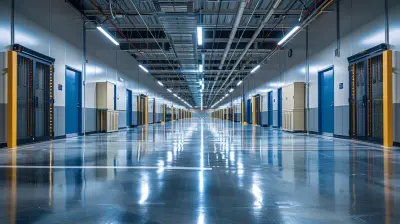
How Data Centers Support the Growing Demand for 5G Networks
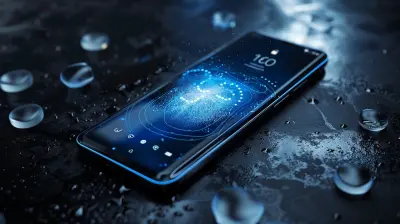
The Role of Biometric Sensors in Smartphone Security
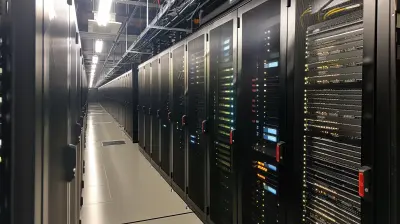
What Is a Zero-Trust Data Center and Why It Matters

Blockchain and the Circular Economy: A Sustainable Partnership

Blockchain and 5G: Driving the Next Wave of Connectivity
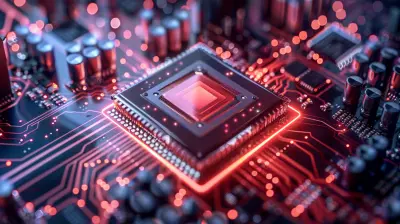
How Quantum Computing Could Transform Digital Solutions

How Smart Glasses are Evolving for Everyday Use

Wearable Tech Meets Laptops: Exploring Future Trends in Mobile Computing